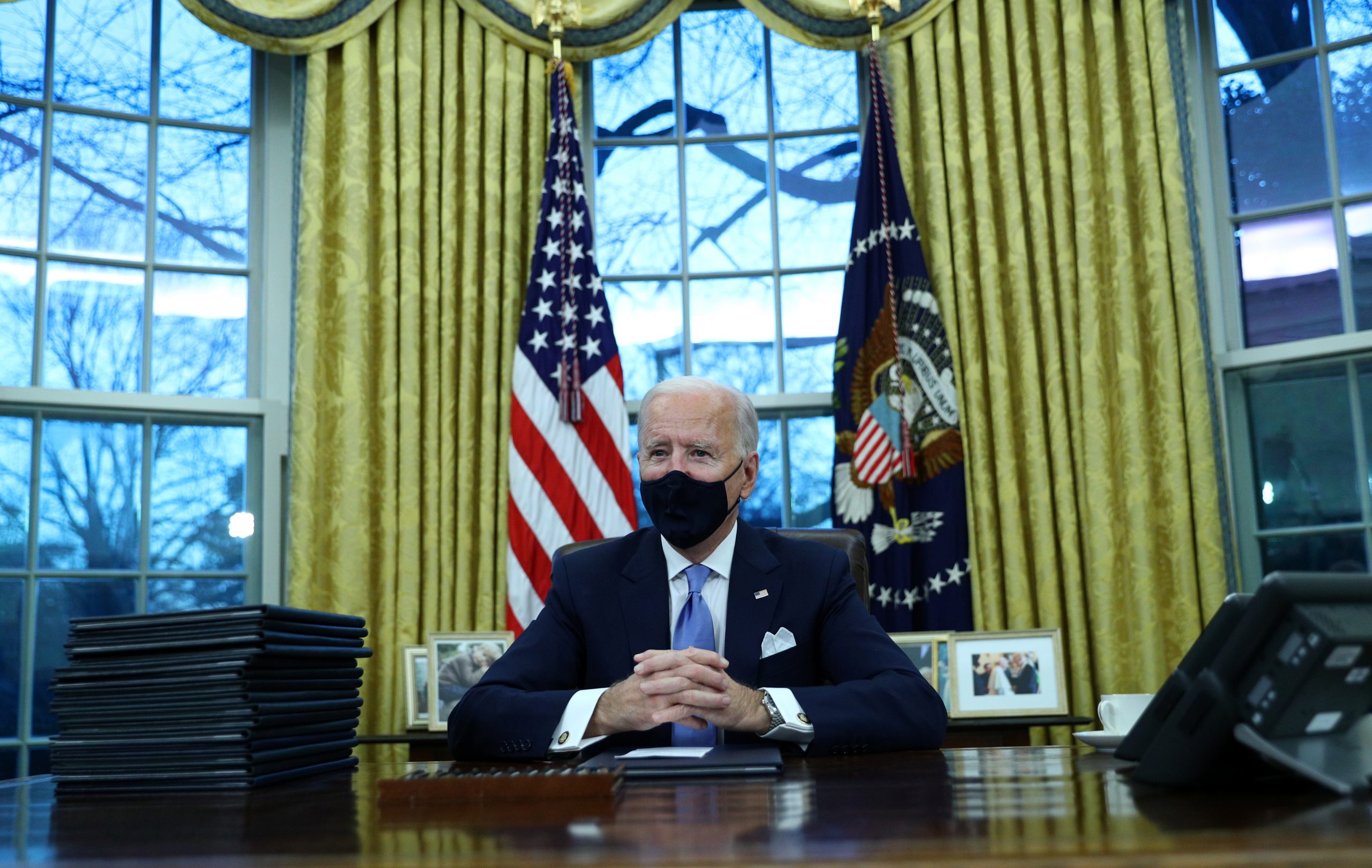U.S. President Joe Biden spoke to Russian President Vladimir Putin on Tuesday for the first time since taking office and raised concerns about Russian activities including the treatment of jailed Kremlin critic Alexei Navalny, the White House said.
A White House statement said the two leaders agreed to have their teams work urgently to complete the extension of the New START arms control treaty between the United States and Russia by Feb. 5, when the current pact expires.
White House spokeswoman Jen Psaki announced the phone call between the two leaders at her daily briefing. It came as Biden adjusts U.S. policy in a more robust way toward Russia after his predecessor, Donald Trump refused to take on Putin directly.
At the same time, Biden sought to repair the strained alliance between the United States and Europe by stressing in a phone call with NATO Secretary General Jens Stoltenberg that Washington would abide by the NATO treaty’s mutual defense pact.
“President Biden reaffirmed the United States’ commitment to collective defense under Article 5 of the North Atlantic Treaty and underscored his commitment to strengthening transatlantic security,” a White House statement said.
In the Putin phone call, Psaki said, topics included Biden’s proposal to extend the New START nuclear arms treaty with Russia for five years and “strong (U.S.) support for Ukraine sovereignty” in the face of ongoing Russian aggression.
The arms control treaty limits the United States and Russia to deploying no more than 1,550 strategic nuclear warheads each.
Psaki said Biden also raised the case of Navalny, who was jailed after his return to Moscow from Germany last week, a case that has raised tension between Russia and the United States.
Biden further voiced concern to Putin about what the White House called interference in the 2020 presidential election, as well as the massive Solar Winds cyber hack blamed on Moscow and reports that Russians offered bounties to Taliban insurgents for killing U.S. troops in Afghanistan.
Biden’s phone call with Stoltenberg came a day after he spoke with German Chancellor Angela Merkel.
“The president thanked the (NATO) secretary general for his steadfast leadership of the alliance, and conveyed his intention to consult and work with allies on the full range of shared security concerns, including Afghanistan, Iraq, and Russia,” the White House statement said.
(Reporting by Trevor Hunnicutt and Steve Holland; Editing by Mark Heinrich)

























 Continue with Google
Continue with Google